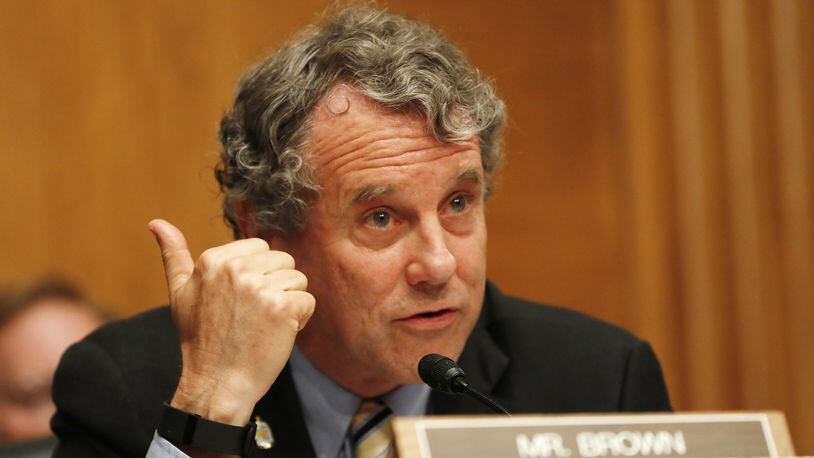While the House passed a health care bill in May, the Senate has struggled to follow suit. Tax reform has not moved, though some say they’re still hopeful. Infrastructure, too, is in a legislative purgatory.
And that wall that President Donald Trump promised during the campaign? The president last week said a full border wall isn’t necessary.
Then there’s the nuts-and-bolts stuff: Congress has yet to pass a budget, and government funding expires in September. Neither house of Congress has passed any of the 12 appropriations bills Congress is supposed to pass each year. An increase in the debt limit, needed to keep the government running, awaits another vote. And the Senate still faces a laundry list of nominations that it must confirm.
The to-do list is so lengthy Senate Majority Leader Mitch McConnell threw up his hands last week and delayed the body’s traditional August recess for two weeks. In the House, members of the conservative Freedom Caucus are calling for a similar delay.
Perfect year
On the surface, this year appeared to offer the perfect set of circumstances for Republicans to enact their legislative agenda: They carry majorities in the House and Senate and occupy the White House.
But Sarah Binder, a professor of political science at George Washington University, said the outlook isn’t so rosy if you look between the lines.
For one thing, the majorities are slim and fractious: The divide between conservative and moderate Republicans is sharp. For another, Trump has not enjoyed the polling support in the early months that his recent predecessors have — a fact that makes it harder for rank-and-file lawmakers to take risky votes.
And Trump’s rhetoric isn’t always helpful, Binder said. While he celebrated the House health care bill passage with a Rose Garden ceremony at the White House, he later told the Senate that that bill was “mean,” indicating he didn’t support that bill after all. His shoot-from-the-hip style is far from predictable, she said.
“They don’t know where he’s going to be” on some issues, she said.
The lack of progress has been maddening for lawmakers..
“Should we really go home for August and not have a tax bill to talk to the American people about?” said Rep. Jim Jordan, R–Urbana, a member of the Freedom Caucus. He said he was “frustrated” that Congress didn’t immediately pass a clean repeal of the 2010 health care law signed by President Barack Obama back when the year began.
Rep. Steve Stivers, R–Upper Arlington, admits progress is “a little slower than expected” but said the House is on track to pass more bills than any Congress since the Truman administration. He said he still believes that Congress will pass a health care bill and a tax reform bill.
“It’s not like we’re not doing anything,’ he said, “but the big things voters wanted and I want to get done are not done yet.”
Ahead of schedule?
For his part, House Speaker Paul Ryan said the budget process is actually moving smoothly, considering the late start that typically occurs during the first year of a new presidency.
“We’re actually well ahead of schedule,” he said.
If the Senate passes its new health care bill, “we’ll stay and finish the health care bill” during their August recess, Ryan said.
Binder said the inability to act quickly on the major campaign promises is at odds with recent first term presidents who enjoyed same-party majorities. George W. Bush managed to pass tax cuts by June. Barack Obama passed the Lilly Ledbetter Fair Pay Act, which addressed pay equity for women, in January.
Part of their success was because the legislative wins were set up well before they took the oath of office. Bush had vetoed the Lilly Ledbetter Act, and Democrats were poised to seize on that issue by the time Obama took office.
“There’s a pattern that shows up often when unified parties come under control,” Binder said. “They take up what had been stalemated during past Congresses.”
Sen. Sherrod Brown, D–Ohio, said he’s “fine” staying well into the August recess, but said it would be easier to move forward legislatively if Republicans worked with Democrats. He’s highly critical of how McConnell drafted the health care bill, saying it occurred “behind closed doors” and with little input even from fellow Republicans.
“Republicans don’t like it either,” he said, adding, “we’re not producing anything as a result.”
Others say that it’s not too late for Congress to begin knocking off the items on their to-do list.
“It’s too soon to say, ‘oh, well, Congress has been unproductive,” said Kyle Kondik of the University of Virginia Center for Politics. “There’s still a ways to go.”
Bills passed by Congress this year
- Health care. Though the Senate has not passed a health care bill, the House did so in May. Speaker Paul Ryan, R-Wis., says if the Senate passes its bill, the House is prepared to stay in session during its August recess to reconcile the two bills.
- Regulatory relief. The House passed 14 bills repealing rules former President Barack Obama implemented during the last few months of his administration.
- VA Reform: The House passed a bill aimed at boosting accountability for the VA.
- Wall Street: The House passed a bill aimed at replacing the Dodd-Frank Wall Street reform bill. The bill would roll back may of the regulations implemented in the aftermath of the financial crisis.
- Immigration: The House passed two laws aimed at preventing sanctuary cities from getting federal dollars and increase penalties for deported immigrants who return and are caught.
About the Author
